Undergraduate and OLLI students in a joint health and aging policy class taught by Associate Professor Skye Leedahl engage in an intergenerational discussion of the book, Being Mortal, by Atul Gawande, in the Memorial Union on the Kingston Campus.
Finding ways to include older adults in the Rhody community of teachers and learners has earned URI a national honor and enriched the lives of students, faculty, and community members.
By Diane M. Sterrett
The U.S. Census Bureau estimates 3 in 10 Americans will be over the age of 55 by 2030, representing an enormous opportunity to innovate and problem-solve. From training caregivers to dispelling ageism myths and offering lifelong education, URI is responding to the educational, social, and health needs of older adults with a comprehensive range of programs and partnerships.
In 2018, URI was honored to be designated an Age-Friendly University (AFU) by the Academy for Gerontology in Higher Education, one of 48 in the United States. AFUs endorse such principles as encouraging participation of older adults in the university’s core activities, promoting intergenerational learning, and ensuring the university’s research agenda includes the needs of an aging society.
“Older people have a lot to contribute, but they are often overlooked.”
—Phil Clark, Professor of Human Development and Family Science and Director of URI’s Program in Gerontology
“The idea of an Age-Friendly University is that it fosters multiple ways of viewing the experience of growing older,” says Phil Clark, professor of human development and family science in the College of Health Sciences and director of the Program in Gerontology, who spearheaded URI’s bid to earn the AFU designation. “There is a structured ageism in the way we approach education, a one-and-done approach. As an AFU, we have an opportunity to rethink that model and use the University as a mechanism to enrich our community. Older people have a lot to contribute, but they are often overlooked.”
URI’s AFU initiative aims to find more ways to engage more older learners in URI classes, as well as to address ageism and increase student interest in working with older adults.
“Being an AFU gives us a framework and embedded philosophy to develop many aging and older adult-related teaching, research, and service efforts, making it a cohesive whole rather than a series of random offerings,” says Skye Leedahl, associate professor of human development and family science, who leads many age-inclusive, intergenerational activities. “From a diversity and inclusion perspective, the university structure is an ideal place to include those of all ages and is a primary driver of why I am passionate about seeing the AFU concept evolve at URI.”
Clark emphasizes that being an AFU is not about creating separate communities of young and old, but about creating awareness that people have varying educational needs throughout their lives, and ensuring the university meets and supports those needs in an affordable way.
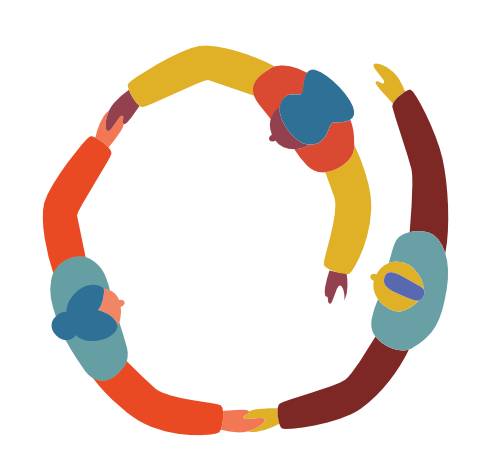
There’s also an economic benefit to thinking creatively about involving older adults in higher education, Leedahl points out. An Oxford Economics and AARP study estimated that the economic activity driven by Americans 50 and older pumped $7.6 trillion into the economy in 2015.
As an AFU, URI has many initiatives, including those we highlight here, that address the aging population from several angles—educational, social, psychological, and medical.
Rhode Island Geriatric Education Center
Funded by the federal government, Rhode Island Geriatric Education Center (RIGEC) is a consortium of educational, health-care, and outreach programs dedicated to improving health outcomes in older adults. With URI as the lead institution and Clark as director, it comprises hospitals, primary care networks, and key community agencies. The goal is to create an age-friendly health-care system in Rhode Island by integrating geriatrics into primary care and providing coordinated, comprehensive, patient/family-centered health care.
RIGEC provides geriatrics education and training to prepare professionals, students, and caregivers to better meet the physical, functional, and psychosocial needs of older adults. In the 2020–21 grant year alone, RIGEC provided 97 continuing education activities to over 4,000 health-care professionals and students from different disciplines, including medicine, pharmacy, nursing, allied health, social work, psychology, and health services administration. In addition, six 32-hour patient education workshops were provided to 292 community-dwelling older adults.
“Training the next generation and delivering community-based programs in support of age-friendly initiatives in health and social care are important in creating an age-friendly health-care system,” says Clark.
The Age-Friendly University initiative integrates a wide range of programs that bring older adults into URI’s community of teachers and learners.
- Disrupt Aging Classroom
- Engaging Generations: Cyber-Seniors
- Finish What You Started
- Osher Lifelong Learning Institute
- Rhode Island Geriatric Education Center
One of RIGEC’s partners is the Care Transformation Collaborative of Rhode Island (CTC-RI), a nonprofit working with clinical practices, health plans, and key stakeholders to transform primary care.
“They are really the go-to people for any needs in geriatric education,” says Susanne Campbell, CTC-RI’s senior program director. “We look to them any time we’re creating a program or testing innovation around what works for older adults and caregivers or looking for content experts for our annual conference.”
For the collaborative’s recent quality improvement initiative around telehealth, RIGEC helped Campbell connect with the Cyber-Seniors program and found training resources for community health workers. For another program on advanced care plans, RIGEC helped Campbell find legal and end-of-life care experts.
“RIGEC has provided education for our nurse care managers, including programs on the dangers of polypharmacy, assessing for falls, and creative approaches around cognitive problems. They’re very collaborative, have terrific resources, and can pull together a stakeholder group to problem-solve and strengthen team-based care,” Campbell adds.
Osher Lifelong Learning Institute
Osher Lifelong Learning Institute (OLLI) is a learning community for adults aged 50-plus. The programs recognize the importance of lifelong learning and social engagement as we age: The oldest member is 98, the average is 72.
“OLLI is a happy, safe environment for people who want to continue learning, exploring, and meeting people,” explains Beth Leconte, OLLI’s director. “Instructors tell me they may be facilitating the subject matter, but it’s really an open give-and-take conversation because of the references and life experience people bring. From that, new friendships are developed, people form connections, and the magic just kind of happens.”
As a member-driven organization, classes follow participants’ interests. This summer, classes were offered in current events, history and government, humanities, and STEM. In addition to academic topics, OLLI offers special interest groups such as walking, poetry, golf, and mahjong. An OLLI class helped Liz Gilheeney discover a drawing talent she didn’t know she had.
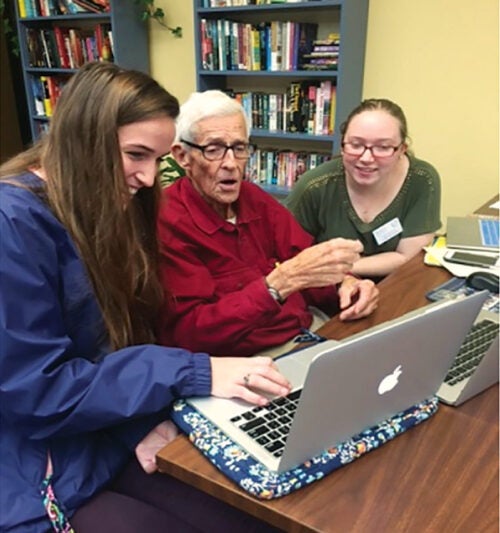
“It was like there was a seed inside me and OLLI watered it and it grew. If not for the OLLI lessons and support, I would not have known I had this talent and be able to share it,” she says. “I get so much enjoyment out of it—when you’re older and retired, your world becomes a little smaller, and trying to carve out meaning for this part of your life is daunting at times.”
She began drawing Corvettes, the first a 1953 model she’d seen at a rally she and her husband attended. Requests for drawings poured in, and she has now drawn nearly every model year, giving them away as gifts.
Similarly, Jet Vertz retired to Rhode Island after a career in aviation and wondered what the next chapter of life would bring. He joined OLLI and began taking courses.
“OLLI gave me a structure and focus for my retirement,” he says. “I realized that it’s more than just playing another round of golf, walking the same beach for the hundredth time, or taking another cruise. I met other retirees who were going through a similar period of the retirement phase and searching for meaningful things to do beyond babysitting their grandkids. Later, I developed a course on generating a ‘purpose-driven bucket list’ and now teach the subject at OLLI.”
In addition to enhancing members’ lives, OLLI also benefits the University through intergenerational programming, such as an aging policy class and intergenerational classes that connect undergraduate students with OLLI members. Members are also often tapped by physical therapy, pharmacy, kinesiology, and engineering students for research.
Engaging Generations: Cyber-Seniors
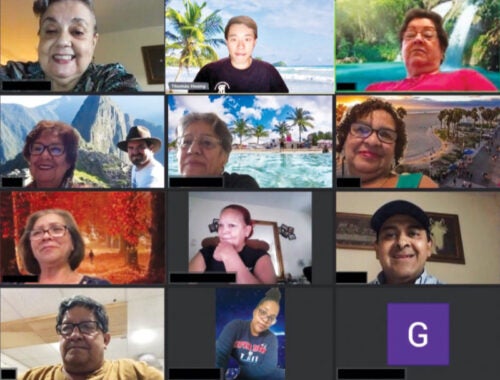
In Cyber-Seniors, undergraduates bridge the technology and generational gap by mentoring older adults in how to use smartphones, tablets, and laptops, mostly through one-on-one appointments. Since 2016, the program has provided assistance to more than 1,000 older adults with about 230 student participants, continuing through the pandemic via phone and Zoom.
“We offer many opportunities for older adults to get help, no matter what their level of digital literacy is,” says Leedahl, who, along with pharmacy professor Erica Estus ’96, Pharm.D. ’00, leads this program and related research efforts.
With a new grant from the Rhode Island Office of Healthy Aging, Cyber-Seniors recently started an iPad initiative to get iPads and internet hot spots to older adults in lower-income communities who have never had access to technology. So far, they have reached about 120 adults and are hoping to reach 200 by the end of 2021.
Cyber-Seniors student mentor Thomas Hoong ’23, a double major in Spanish and supply chain management, works with about 30 Spanish-speaking clients. “I have seen the program bring a lot of joy to older adults because now they have access to communication through technology. They connect to the world a lot better, build relationships through social media, and bond with family over videos. I teach them the basics, but also whatever they are interested in: practicing their English, listening to music, or learning recipes.”
“When you’re older and retired, your world becomes a little smaller, and trying to carve out meaning for this part of your life is daunting at times.”
—OLLI member Liz Gilheeney
In addition to a sense of satisfaction, the program gives Hoong a chance to practice his Spanish; develop skills in leadership, problem-solving, and communication; and learn about the process of aging. “It’s been an eye-opening experience to hear their stories,” says Hoong. “They are so grateful and happy to have the opportunity despite all their struggles.”
One of his favorite moments occurred during a two-and-a-half-hour Zoom session with 14 clients.“It was great to see them all talking and laughing with each other. By the end of the meeting, they were sharing addresses and phone numbers so they could meet up in person and hang out.”
Disrupt Aging Classroom
URI is an active participant in AARP’s Disrupt Aging Classroom, an interactive curriculum built into existing courses. It challenges students to examine their perceptions about aging and to think about how the aging population is relevant to their personal lives and future careers. Students become more age-inclusive by broadening their understanding of and interactions with older adults and are encouraged to take a gerontology class or an internship that includes older adults.
OLLI instructor Jet Vertz also trained as a Disrupt Aging facilitator and responds to faculty requests to present the Disrupt Aging curriculum to students.
“In the future, when I work toward righting these inequalities [in health outcomes], I will know to keep older adults in mind.”
—Meghan Hennedy ’21, Disrupt Aging Classroom participant
“Today’s retirees are living longer and more productively, disrupting the stereotype of an AARP member,” he says. “Passing on the core message of Disrupt Aging fits perfectly with my idea of purpose-driven retirement. We have an opportunity to give back to the world by making it a better place for our grandchildren.”
As facilitators dive into the expectations and realities of aging, ageism, and the personal stakes of students, many of whom will become caregivers, response has been enthusiastic.
“I was shocked to learn just how little training professionals such as nurses, social workers, physical therapists, and medical students receive on aging and older adults,” says Meghan Hennedy ’21, who majored in biology and political science. “My study and future career are focused on inequality in health outcomes, and I had never thought of older adults as a demographic facing inequality. But if the professionals treating them don’t have the proper training and experience, there will be inequality in outcomes. In the future, when I work toward righting these inequalities, I will know to keep older adults in mind.”
Finish What You Started
One of the AFU principles is to address the full range of educational needs of older adults. URI’s Finish What You Started program provides extraordinary support for older adults who left school earlier in life and now wish to complete their degrees. The oldest student is 83, the average adult student is 38, over 880 have enrolled, and 577 diplomas have been awarded.
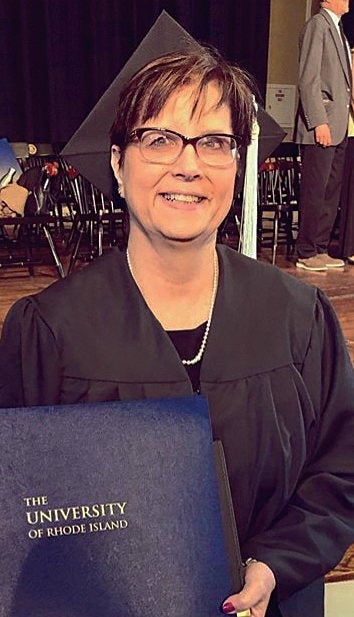
“We all want someone to believe in us and that’s what this program represents,” says Nancy Rabidoux ’88, degree completion coordinator at Finish What You Started. “If they have the courage to make that first phone call, we will make sure they land in the right place.”
Rabidoux’s team works with prospective students to help them transfer credits from other colleges or use their URI credits in the smartest way possible, direct them to financial aid and academic assistance, and find programs that work with their schedules. People call for many reasons—whether they left school early, need the degree to get a promotion, or want to finish their degree before their children do.
Susan DeCecco Kosiba ’19 left URI in the 1970s for a job opportunity, just a few credits shy of a home economics degree. She came back and completed a Bachelor of Interdisciplinary Studies degree in 2019 at age 65 and along the way discovered a love of history. She was inspired to stay and earn a second bachelor’s degree in history in 2021, then applied to the accelerated master’s degree program.
“When my husband passed, I looked at my bucket list and saw, ‘Finish your degree,’” Kosiba says. “Walking into that first class, I was shaking. But Nancy and so many amazing people helped me, and everyone was very welcoming. It was probably one of the bigger accomplishments in my life.”
Alumni Programming
Several alumni programs support older learners and further establish URI as an Age-Friendly University. With more than 135,000 alumni living around the world, engagement potential is huge.
One of those programs is Faculty Office Hour, in which faculty host webinars on their areas of expertise, followed by lively Q-and-A sessions. “The response has been tremendous. The last one had over 600 alumni from all over accessing the online livestream,” says Karen LaPointe ’77, M.B.A. ’84, director of strategic initiatives, alumni engagement.
Two more online webinar series appeal to various age groups with a wide range of topics. In the Women’s Leadership Series, successful alumni share their stories, career paths, and knowledge while providing inspiration. Coaches’ Corner features athletic coaches talking about what’s new in their particular sports. All are available on the URI Alumni YouTube channel.
Another program, URI CareerConnect, offers an online mentoring platform for alumni and students of all ages. “You can join to give career advice and be a mentor or join to get advice and be the mentee. You never know where someone is in their career journey—two years out of school, mid-career looking to start a new business, or recently retired looking for an encore career. We’ve been delighted at the response; many of our retired alumni joined as advisors and it’s really heartening to see,” LaPointe says.
Looking Ahead: A Retirement Community?
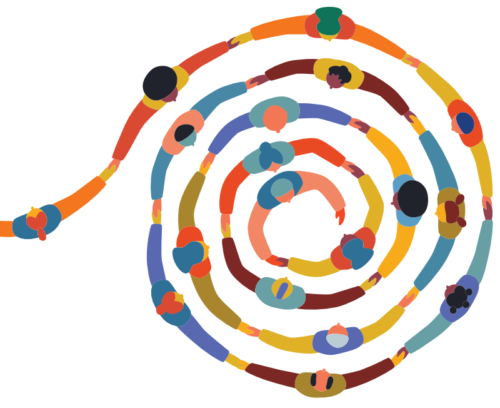
A URI committee has been studying the possibility of a university-based retirement community. Such communities have been successful at other universities and have become something of a national trend. The University of Missouri, for example, established a retirement community, and, because of the research being done there, their school of nursing’s research funding increased 1,500 percent, making it the most well-funded school of nursing in the country.
URI representatives visited successful communities, documented the need, talked with developers and senior living experts, and created a proposal to promote healthy aging-in-place in an active, supportive environment. Envisioned as a walkable condo community, it could include four levels of care plus an interdisciplinary health clinic, pool or exercise facility, in-home services, smart home technology, entertainment, and space for OLLI classes to meet.
“We want to encompass all aspects of the person—social, physical, and educational—to stimulate their minds, really be a holistic place,” says URI nursing professor Patricia Burbank ’74, who led the committee. “Being affiliated with the University means residents could take classes, use some of URI’s facilities, and have close relationships with students and faculty for research and service opportunities.”
The project has the potential to impact the lives of older adults positively, as well as provide a research and training opportunity for URI nursing, pharmacy, and health sciences students and faculty, and the committee continues to move the proposal forward.
What’s Next?
“We are committed to the idea of intergenerational solidarity. We’re stronger together.”
—Skye Leedahl, Associate Professor of Human Development and Family Science and Program Manager of Cyber-Seniors
Based in a small state with a high percentage of older adults—in Rhode Island, more than 31 percent of residents are age 55 and older, compared with 28 percent nationally—and the beginnings of an age-friendly health-care system, URI is uniquely situated to become a leader in the AFU movement.
“We have an unprecedented opportunity to offer easier access to programs, not only to educate students about older adults and send them off into the workplace with the skills and abilities to work in this environment, but also for older adults to engage in higher education,” Clark says.
Clark and Leedahl are proud of URI’s successes and the ways the University has embraced being an age-friendly university. They also look forward to building on what URI already does well and expanding AFU activity into new areas, such as research.
“Aging and health is a growing area of expertise and interest at URI,” Leedahl says. “Many faculty, staff, and students are increasingly involved in important research, teaching, and outreach initiatives in this area.
“We are committed to the idea of intergenerational solidarity,” Leedahl adds. “We’re stronger together, and if people can learn each other’s values and truly embody and understand what others can contribute, there are so many social issues that can be solved.” •
Diane M. Sterrett has been writing in nearly every medium for more than 35 years. Her passion is learning and writing about the ocean, the environment, health care, and education. Based in Tiverton, R.I., when not writing, she can be found sailing Narragansett Bay and beyond.
ILLUSTRATIONS: Adobe Stock, PHOTOS: Courtesy URI Osher Lifelong Learning Institute, Thomas Hoong, Susan Dececco Kosiba, and Skye Leedahl
